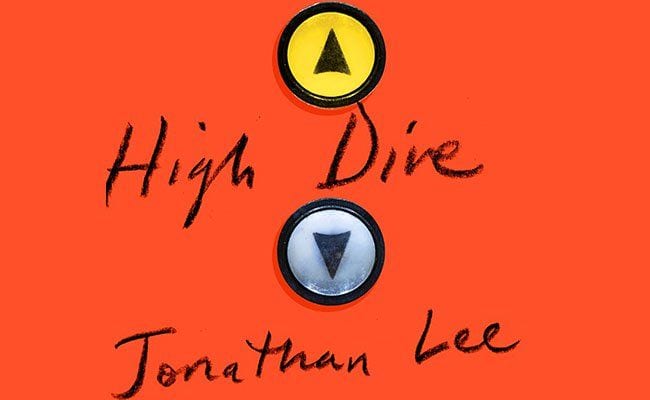
At the beginning of Orson Welles’ classic 1958 film Touch of Evil, a mysterious man in a suit plants a bomb in the trunk of car, which the camera then tracks for three excruciating minutes. Though 180 seconds seems brief, the tension is thick and when the car finally explodes, shock and relief are felt in equal measure. For film students, it’s positive proof of the power that suspense wields over surprise. But compared to the 321 page high-wire act of Jonathan Lee’s High Dive, Welles’ three minutes of suspense doesn’t seem all that bad to bear.
High Dive is centered around the 1984 Grand Hotel Bombing, a terrorist attack and assassination attempt on then-Prime Minister Margaret Thatcher and her cabinet made during the Conservative party conference by the Irish Republican Army, a terrorist group which advocates for Northern Ireland’s independence from the United Kingdom. Lee concerns himself primarily with three fictional characters, one young IRA member, a manager at the Grand Hotel and his daughter, who works at the hotel, as well.
Despite the story’s smoldering core, Lee concerns himself mostly with the periphery. He’s a gentle and empathetic writer. When Dan, the IRA member, is working on planting the bomb, it’s approached in a way that almost makes the reader want Dan to succeed, and for this bomb to be wired correctly so that the long delay works properly and it goes off during the Conservative convention. On the other hand, Phillip needs the conference to go well to secure a promotion and maybe send his daughter, Freya, to college, and the reader is sympathetic toward his concerns, as well.
These equal and opposite desires are worked marvelously all throughout High Dive. Lee finds a way to balance what Phillip and Freya want against what Dan wants, despite the uneven proportion of their plights. There’s never a moment of doubt regarding why Dan is doing what he’s doing. Relatives of his were killed on Bloody Sunday (in January of 1972, British soldiers shot 26 unarmed civilians in Northern Ireland who were protesting the internment of over 300 people suspected of being in the IRA) and the British government is not given the benefit of the doubt.
Further, the story allows more senior members of the IRA to make the argument that violence is the only way the British government will ever enact change, and this is not challenged. The religious persecution that Dan and his mother (with whom he lives) suffer compounds, and through his eyes, his actions are, right or wrong, understandable.
Still, Phillip and Freya are not quite living out their dreams, and despite the much lower stakes, their personal problems are given no less weight. Freya, having graduated high school and done well, is unsure if she wants to go to college or not. Her dad is sure that he wants her to go to college, but is unsure how to pay for it. Their politics are not challenged much, though Freya is, at times, prodded into near-action by one of her friends who protests Thatcher. What Lee won’t answer for the reader is perhaps the thorniest question the book brings about: who is it fair to blame?
It’s inarguable that the Grand Hotel was complicit in the reign of Margaret Thatcher. It lobbied hard to host her and her party, and when the hotel was selected, it did whatever it could to treat her well. This is, of course, an economically sound thing to do, though its morals are more dubious. Lee does a lot of work to actively tie not only the financial prospects of the hotel to hosting the event, but to Phillips’ personal financial success, as well. In one way, this depoliticizes him. Because he has something to gain, his support of Thatcher and her party can be seen as apolitical.
However, it’s also true that support is support, ideological or otherwise, and despite an indifference to politics as an institution, he’s actively taking part in supporting and legitimizing the system that has left the residents of Northern Ireland oppressed and desperate. Lee doesn’t go so far as to turn any part of his book into a polemic, but in positioning otherwise innocent and virtuous private citizens as complicit in system, the reader is forced to consider who shares how much of the blame for the bad actions of capitalist democracies.
Still, despite the complicated political climate hanging over the novel, High Dive shines in the smaller moments when, for example, Dan is blowing off steam while gardening, or Freya is flirting and swimming. Perhaps the novel’s best chapter is one that takes place between Phillip and his mother, near the climax of the story. The two of them sit down for dinner, and what unfolds is funny and relatable and heartbreaking in equal measure. It’s emblematic of the control Lee exercises over the flow of the novel, his ability to maintain the suspense without either rushing to the end or feeling like he’s deliberately steering away from the conclusion in order to milk it for a few pages longer.
Lee, in his first novel published stateside, displays an exceptional ability to balance the momentous event with the human experience, digging into what makes his characters tick without losing sight of the outsized consequences of their actions. The prose has just the right tone, and the book hums along at just the right speed. Lee knows which questions to answer and which to leave hanging. It’s difficult to write about a historical event so violent and so recent, but High Dive is a hell of a blueprint.


![Call for Papers: All Things Reconsidered [MUSIC] May-August 2024](https://www.popmatters.com/wp-content/uploads/2024/04/all-things-reconsidered-call-music-may-2024-720x380.jpg)



